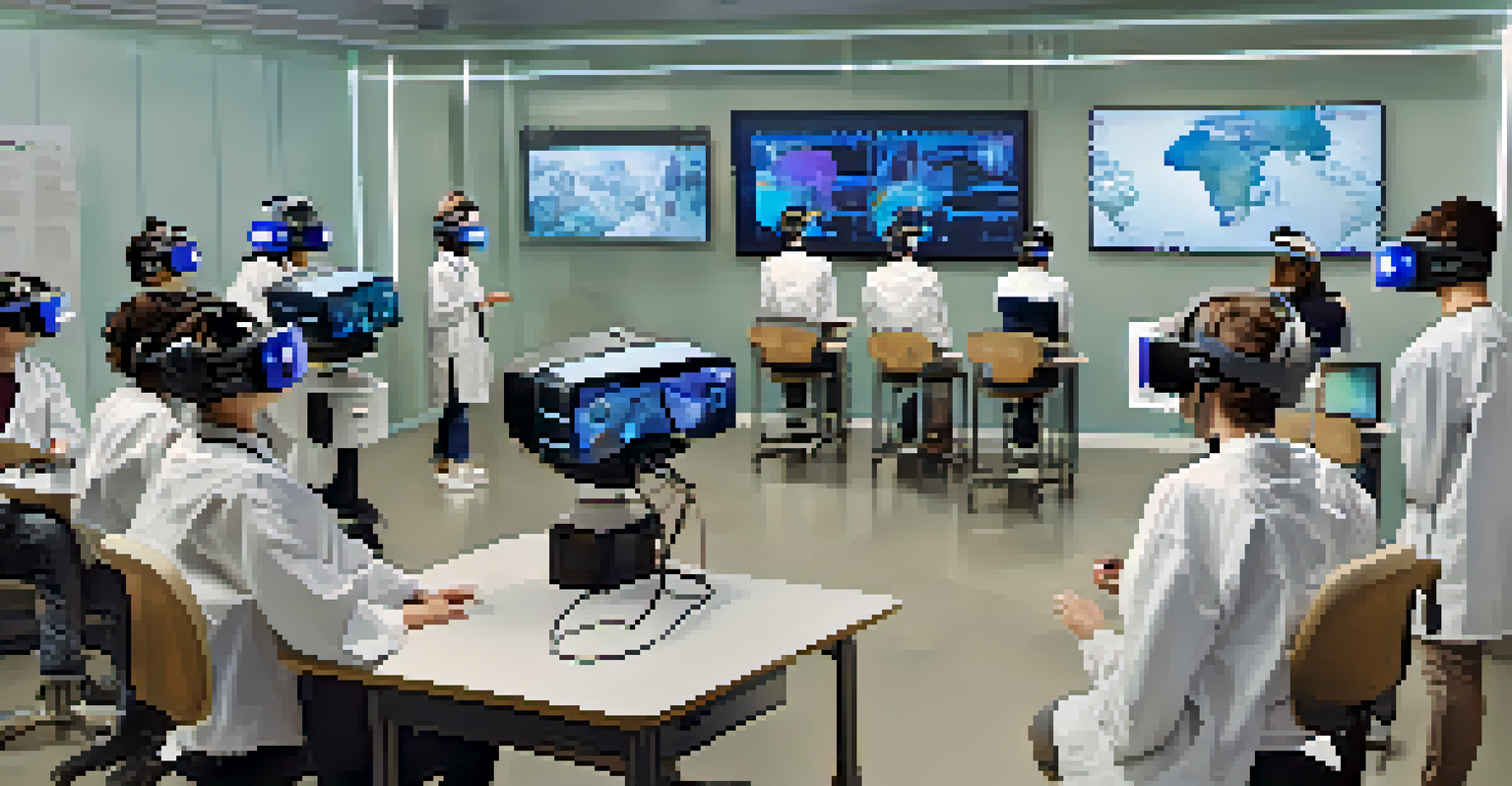Experiential Learning: Cultivating Skills for Real-World Impact

What is Experiential Learning and Why Does It Matter?
Experiential learning is a hands-on approach to education that emphasizes learning through experience. Unlike traditional classroom settings, this method allows learners to engage directly with the material, making it more relatable and impactful. It’s essential because it prepares individuals not just to memorize facts but to apply knowledge in real-world situations.
Tell me and I forget. Teach me and I remember. Involve me and I learn.
This approach is grounded in the idea that the best way to learn is by doing. For instance, a student studying environmental science might participate in a conservation project rather than just reading about ecosystems. This type of active engagement fosters deeper understanding and retention of knowledge.
Moreover, with the rapid changes in today's job market, having practical experience gives learners a competitive edge. Employers often seek candidates who can not only fill a role but also adapt and contribute meaningfully to their teams.
The Core Principles of Experiential Learning
At the heart of experiential learning are four key principles: concrete experience, reflective observation, abstract conceptualization, and active experimentation. First, learners encounter a real-world scenario, which serves as the concrete experience. This might involve anything from internships to simulations.

Next, reflective observation encourages individuals to think critically about their experiences. After participating in an activity, reflecting on what went well and what could be improved helps solidify learning. This step is crucial, as it transforms mere participation into valuable insights.
Experiential Learning Defined
Experiential learning emphasizes hands-on engagement, allowing students to apply knowledge in real-world situations.
Finally, active experimentation involves applying what has been learned to new situations. This iterative cycle ensures that individuals continually refine their skills and approaches, making them better prepared for future challenges.
Benefits of Experiential Learning for Skill Development
One of the primary benefits of experiential learning is the development of critical thinking and problem-solving skills. When faced with real-world challenges, learners must analyze situations, weigh options, and make decisions on the fly. This not only boosts confidence but also equips them to tackle complex problems in the future.
Learning is not the product of teaching. Learning is the product of the activity of learners.
Additionally, this approach fosters collaboration and communication skills. In many experiential learning settings, participants work in teams, which teaches them how to effectively share ideas and listen to others. These interpersonal skills are invaluable in almost every professional environment.
Moreover, experiential learning cultivates adaptability. As learners encounter diverse situations, they become more comfortable with change and uncertainty, enabling them to thrive in today's fast-paced world.
Real-World Applications of Experiential Learning
Experiential learning can be found in various fields, from education to healthcare and business. For example, medical students often engage in hands-on clinical rotations, allowing them to apply theoretical knowledge in patient care settings. This experience is crucial for developing the skills and empathy necessary for effective healthcare professionals.
In business, internships and co-op programs provide students with invaluable industry exposure. They learn about workplace dynamics, professional etiquette, and the practical application of their studies. Such experiences often pave the way for job opportunities post-graduation.
Key Principles of Learning
The core principles of experiential learning include concrete experience, reflective observation, abstract conceptualization, and active experimentation.
Even in non-traditional settings, like community service projects, experiential learning takes center stage. Volunteers learn organizational and leadership skills while making a positive impact, demonstrating that learning can happen in various contexts.
Challenges and Considerations in Implementing Experiential Learning
While experiential learning offers numerous benefits, implementing it effectively can pose challenges. One common issue is the availability of resources; not every educational institution has the means to provide hands-on experiences. This can create disparities in learning opportunities among students.
Additionally, assessment and evaluation can become tricky. Traditional grading methods may not effectively measure the skills and knowledge gained through experiential learning. Educators must find new ways to assess student performance that reflect their actual growth and development.
Lastly, instructors themselves need to adapt to this teaching style. Transitioning from a lecture-based approach to one that emphasizes facilitation and mentorship requires training and support. Ensuring educators are prepared to guide students through experiential learning is vital for success.
The Role of Technology in Experiential Learning
Technology plays a pivotal role in enhancing experiential learning. Virtual reality (VR) and augmented reality (AR) can simulate real-world environments, allowing learners to practice skills in a safe setting. For instance, medical students can use VR to perform surgeries virtually before working with real patients.
Online platforms also facilitate experiential learning by connecting students with remote internships and global projects. This expands opportunities beyond geographical limitations, making it easier for learners to gain diverse experiences.
Technology Enhances Learning
Technology, such as VR and online platforms, significantly enhances experiential learning by simulating real-world environments and broadening access to diverse experiences.
Furthermore, technology can aid in reflection and assessment. Digital portfolios allow students to document their experiences, reflect on their learning, and showcase their skills to potential employers, bridging the gap between education and the job market.
How to Incorporate Experiential Learning in Education
Incorporating experiential learning into educational programs requires strategic planning and creativity. Educators can start by identifying relevant real-world experiences that align with their curriculum. This could include guest speakers, field trips, or project-based learning.
Collaboration with local businesses and organizations can also create valuable partnerships. By working together, educators can provide students with access to internships or community service projects that enhance their learning experience.

Lastly, fostering a culture of reflection is crucial. Encouraging students to discuss their experiences and what they learned helps solidify their understanding and encourages continuous growth. This reflective practice can transform their learning journey into a powerful tool for personal and professional development.